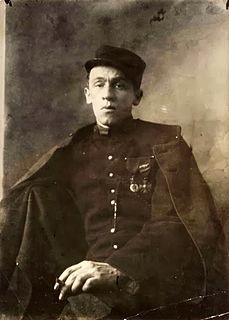A Quote by Blaise Cendrars
Related Quotes
I think that prog rock is the science fiction of music. Science fiction speculates on what the future might be and look like and how we'll get there, and yet there's always a central theme of humanity, or there should be. Progressive rock has the same concept of exploration into the parts of the music world that hasn't been explored.
Oh my God, does art engender humanity? It awakens your humanity. But humanity has nothing to do with political theory. Political theory is in the interests of one group of humanity, or one ideal for humanity. But humanity-my heavens, that's what proper art renders. We have a paradox. Going into the deepest aspects of inner space connects you with something that is the most vital for the outer realm.
With the Black Lives Matter movement, a lot of the focus is on the protest and dissent. I'm hoping to dismantle the public notion - for folks outside of the community - of what Black Lives Matter means. It's really about saying that black lives matter: that humanity is the same when you go inside people's homes.
As we all know, the objective and mission of the photojournalist is to show us the reality of the world. And in order to capture that reality, they go to dangerous and tragic places at the expense of their lives. I see them as the conscience of our humanity; they represent for me what is left of our humanity.
Writing fiction is not a profession that leaves one well-disposed toward reading fiction. One starts out loving books and stories, and then one becomes jaded and increasingly hard to please. I read less and less fiction these days, finding the buzz and the joy I used to get from fiction in ever stranger works of non-fiction, or poetry.







































